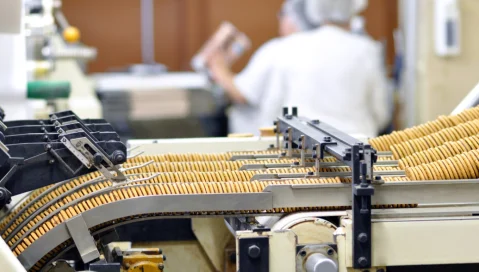Introduction
In the contract food manufacturing market, making certain quality assurance is of utmost importance. With the enhancing demand for contract food manufacturing in Australia, it is crucial for companies to execute ideal practices and comply with stringent standards. This article will delve into the different facets of achieving quality control in contract food production, highlighting the vital practices and also criteria followed in Australia.
The Relevance of Contract Food Manufacturing in Australia
Contract food production plays a crucial function in the Australian food market. It permits business to outsource their food manufacturing to specialized producers, allowing them to concentrate on various other elements of their business such as advertising and marketing as well as distribution. Contract food manufacturing also provides versatility to services by allowing them to scale up or down their production based on market demands.
Contract Food Production: A Growing Pattern in Brisbane
Brisbane, being a major city in Australia, has actually witnessed a substantial growth in contract food manufacturing. This fad can be credited to the boosting number of companies choosing outsourcing their food manufacturing demands. Contract food manufacturing in Brisbane offers a number of benefits such as price savings, accessibility to customized equipment and also knowledge, and also conformity with stringent high quality standards.
Best Practices for Contract Food Manufacturing
To attain quality control in contract food production, it is necessary to follow ideal techniques that make sure consistency, safety, as well as efficiency. Several of these best techniques consist of:
GMP (Good Manufacturing Practices) Compliance: Following GMP guidelines helps maintain top quality requirements throughout the production procedure. This consists of proper training of personnel, maintaining sanitation and health, as well as carrying out durable quality control measures.

Food Safety and security Monitoring Systems: Implementing a detailed Food Safety and security Monitoring System (FSMS) is crucial for making sure the safety of food products. This includes normal assessments, danger analysis, and application of preventive measures.
Quality Control Testing: Routine screening of basic materials, in-process samples, and completed products is necessary to recognize any type of discrepancies from top quality requirements. This includes screening for microbial contamination, chemical structure, and sensory attributes.
Traceability and also Documentation: Keeping accurate records of all manufacturing procedures, active ingredients used, and packaging products helps guarantee traceability and liability. This documents also helps in identifying as well as resolving any top quality issues that might arise.
Supplier Qualification: Carrying out complete evaluations of suppliers makes certain that they satisfy the needed high quality criteria. This consists of evaluating their production procedures, accreditations, as well as track record in supplying high-quality products.
Continuous Improvement: Frequently examining as well as upgrading procedures based on comments and sector advancements is important for attaining constant enhancement in contract food manufacturing. This includes tracking crucial performance indicators (KPIs) and applying rehabilitative actions when necessary.
Standards in Australian Contract Food Manufacturing
Australia has stringent requirements and also policies in place to ensure the safety and also top quality of contract food manufacturing. Some of the key requirements consist of:
Food Standards Code: The Food Specification Code sets out the demands for food manufacturing, labeling, and also handling in Australia. It covers areas such as food safety, ingredients, labeling demands, and also nutritional information.

HACCP (Hazard Evaluation Important Control Point) : HACCP is a systematic approach to determining prospective risks in the production procedure and also carrying out control measures to avoid them. It is a commonly identified requirement for making sure food safety.
ISO 22000: ISO 22000 is a worldwide standard that defines the needs for a Food Safety And Security Monitoring System (FSMS). Sticking to this standard helps companies demonstrate their dedication to food safety.

SQF (Safe High Quality Food) Certification: SQF certification ensures that a firm's food security monitoring system satisfies worldwide requirements. It offers assurance to consumers that the products they receive are safe and also of high quality.
AIB International Certification: AIB International certification focuses on the cooking market and also makes sure that manufacturers meet specific food security as well as quality needs. This accreditation is extremely related to in the contract food manufacturing sector.
FAQs about Quality Assurance in Contract Food Production
What are the advantages of contracting out agreement food manufacturing? Outsourcing contract food manufacturing allows firms to concentrate on core competencies, minimize prices, gain access to specific expertise, and boost manufacturing flexibility.
How can I make sure that a contract food maker meets my quality standards? It is essential to perform comprehensive due persistance prior to selecting an agreement food supplier. This consists of reviewing their qualifications, performance history, quality control procedures, and also consumer feedback.
What actions can be taken to avoid cross-contamination in agreement food manufacturing? Appropriate partition of manufacturing locations, specialized devices for irritant handling, as well as carrying out rigorous cleaning procedures are some steps that can help prevent cross-contamination.
What duty does packaging play in ensuring quality control in contract food production? Product packaging plays a vital function in preserving the top quality and also security of foodstuff. It should be designed to secure against contamination, preserve product freshness, and also give required info to consumers.
How commonly need to testing be conducted in contract food manufacturing? Evaluating regularity depends on numerous variables such as the type of product, shelf life, as well as regulative demands. It is advised to have a durable testing strategy that covers basic materials, in-process examples, and also ended up products.
What are some common difficulties faced in accomplishing quality control in agreement food production? Usual challenges include preserving uniformity throughout several manufacturing websites, ensuring compliance with transforming guidelines, managing supply chain risks, as well as addressing customer-specific requirements.
Conclusion
Achieving quality assurance in agreement food production is essential for companies operating in the Australian market. By complying with best practices as well as sticking to rigorous requirements such as GMP conformity, implementing food security management systems, as well as carrying out normal quality control testing, companies can make certain the security as well as top quality of their items. It is also important to pick contract food manufacturers who fulfill the needed accreditations and contract manufacturing also have a record of supplying top quality items. By focusing on quality assurance, businesses can construct depend on with consumers and also develop a solid visibility in the competitive food industry.